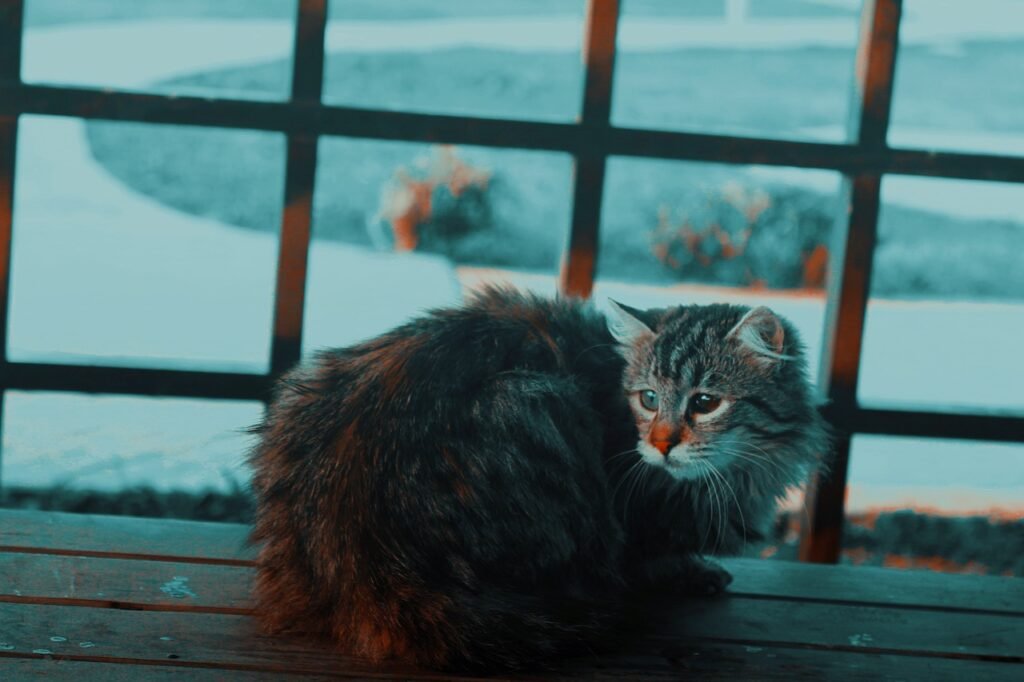As pet owners, we are always thinking about the innocent creatures we have taken guardianship of. In the event of a solar eclipse or other celestial events, you may wonder, “Will this affect my beloved animal?” To answer this, we must understand a little about why the sun and moon are important to animals.

This article contains Amazon Associate links
the significance of night and day to the animal kingdom
Of course, the sun and moon are important to animals! Nocturnal and diurnal animals exist due to their acknowledgment of night and day. Animals adapt to the conditions around them over time. Though adaptation looks different in every species, this is a huge part of what makes each species unique and special. Every existing creature has somehow adapted to the daytime and nighttime.
As an example of adaptation, foxes are considered nocturnal and hunt through the night. The fox has great night vision, and its hunting skills are best utilized in the dark. On the other hand, rabbits have vision comparable to ours and are usually out in the early morning and at dusk. Most predators that pose a threat to rabbits are primarily active during the day or night. Therefore, rabbits have decided it is safest to come out during “shift change.” This is a simple yet great example of the dance between predator and prey.
The rooster starts to crow in the morning, the wolf howls at the moon, the honey bee begins a long day of work under the sun, and the crickets start a symphony with tree frogs at night. It is no secret that the animal kingdom prefers to keep a schedule. If you have pets, you know that they tend to become stressed when their routine is disrupted. Therefore, a significant change such as the weather or a solar eclipse could be extremely distressing to your pet.
animals have a strong relationship with celestial objects
Have you ever worked in a pet store or daycare center? How about a school or a hospital? In these establishments, chaos can sometimes ensue. Whenever significant chaos reigns in these facilities, you might hear a coworker ask, “Was it a full moon last night?” I can recall several times when working in the pet industry where several normally calm dogs would act sporadic when a full moon had been on display the night before. There is a specific kind of chaotic energy that is present when a full moon is near with several people or animals in one building. My mother had worked in a school with small children, and she recalls the unpredictable behavior of the little ones after full moon nights. Whether this is a scientifically proven lunar phenomenon or not, there is something to be said about these common experiences professionals continue to have. However, if you are of a scientific mind, I have something for you too, and it involves dung. To be more specific, it involves dung beetles.
Scientists have proven that the dung beetle is not born with an “oriented compass.” Instead, the dung beetle uses the wind, sun, and celestial polarization patterns to navigate. The dung beetle will perform an orientation dance to take a mental snapshot, creating a map in its tiny brain. This is just the tip of the iceberg concerning the amazing navigational skills of the dung beetle, and there is much more to learn. If you are interested, you will be able to find out more about the dung beetle’s navigational skills by following the links provided in the citations and sources section at the bottom of this article.
There are several animals that respond to moon phases in particular. Certain creatures, such as seahorses, only mate during a full moon. This is further proof of the animal kingdom’s awareness of the moon and its many phases.

What do we know about the affects of eclipses on animals
The short answer is that we do not know much about the effects that solar eclipses have on animals. Solar eclipses are few and far between, so there is not much opportunity to observe different species during the phenomenon. In addition to the few opportunities for observation, studying behavior in animals during this specific event comes with very specific challenges. Implementing scientific controls during solar eclipses could also prove difficult.
While scientific proof may be lacking, collective observations of animal behavior during solar eclipses prove to be valuable insights. Some of these experiences include witnessing chickens returning to their coops, livestock heading to the barn for the night, birds seeming to panic and make lots of screeching noise, and nocturnal animals emerging from their sleep. These reactions stem from understandable causes such as sudden visual changes and disruptions in routine, providing intriguing glimpses into how animals perceive and react to celestial events.
Your pet and the solar eclipse

Some of the key points we have covered include the awareness that animals have of night and day, their responses to celestial patterns, and the importance of routine and schedule keeping. With these thoughts in mind, sudden darkness midday could prove to be stressful to your pet, especially if your pet naturally tends to be anxious. Let’s continue by discussing some ideas to reduce the possible stress that your pet may experience.
The best way to help your pet is to prevent distress from manifesting in the first place. First, be sure to remain calm. Pets are highly in tune with their guardians, even in ways that we may not realize. Animals with a particularly good sense of smell may be able to detect your “fear” pheromones. It is best not to give your pet a reason to be scared. As their guardian, if you are confident, your pet will likely trust your judgment and be more likely to remain calm as well.
Eliminating the source of possible panic is always a good idea. If your pet is indoors, keep them in a room where you can cover windows. Cover outdoor sources of light hours in advance before the upcoming eclipse. This will prepare your pet by reducing the amount of change experienced.
Provide plenty of hiding places. In case your pet senses that something is amiss, it is important that they have somewhere to retreat. A dark, covered area where your pet will feel safe and hidden is valuable to have available to them at all times.
You know your pet best. Distract them with their favorite ball, a new puzzle, a busy board, or any other fun toys that could keep them entertained. If they find comfort from an extra soft blanket or that one stuffed animal that they have carried around their whole life, make sure that it is accessible to them.
Though you may want to protect your pet from experiencing any worry, remember that an eclipse is a short event. Even if your pet recognizes that something strange is taking place, daylight will return soon and your pet will readjust accordingly. If you do your part in providing what your animal needs, they will use the tools given to them to get back to their old selves quickly. So enjoy the eclipse and then wait for it’s next return in twenty years!
Cites and sources:
Annual Reviews (January 2021) ANNUAL REVIEW OF ENTOMOLOGY Volume 66, 2021 How Dung Beetles Steer Straight https://www.annualreviews.org/content/journals/10.1146/annurev-ento-042020-102149
